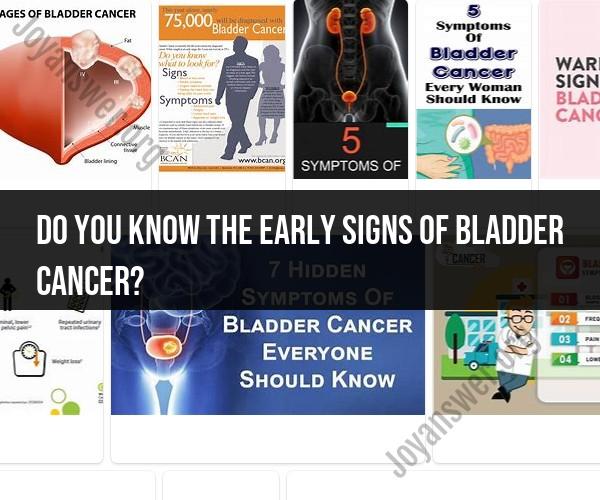Do you know the early signs of bladder cancer?
Bladder cancer is a type of cancer that begins in the cells of the bladder, which is the organ that stores urine. Detecting bladder cancer early can significantly improve treatment outcomes. Here are some early signs and symptoms of bladder cancer that you should be aware of:
Blood in Urine (Hematuria): The most common early sign of bladder cancer is blood in the urine, a condition known as hematuria. The blood may make the urine appear pink, red, or brown. Hematuria can be intermittent and painless, so it's important to see a doctor if you notice any changes in urine color.
Frequent Urination: Bladder cancer can cause increased urgency and frequency of urination. This may be mistaken for a urinary tract infection, but if it persists after treatment, it could be a sign of a more serious condition.
Pain or Burning Sensation: Some people with bladder cancer may experience pain or a burning sensation during urination. This discomfort is often caused by irritation of the bladder lining due to the presence of cancerous cells.
Pelvic Pain: As bladder cancer progresses, it can cause pain in the pelvic area. This pain may be dull and persistent.
Back Pain: In some cases, bladder cancer can cause pain in the lower back, usually near the bladder area. This may be a result of the cancer spreading to nearby tissues.
Changes in Urinary Habits: Other changes in urinary habits, such as difficulty urinating, a weak urine stream, or feeling like you can't completely empty your bladder, may also be signs of bladder cancer.
It's important to note that these symptoms can be indicative of other conditions as well, such as urinary tract infections or kidney stones. However, if you experience any of these symptoms, especially if they persist or worsen over time, it's essential to consult a healthcare professional for a proper evaluation.
Risk factors for bladder cancer include smoking, exposure to certain chemicals, chronic bladder infections or irritations, family history of bladder cancer, and age (the risk increases with age). Regular medical check-ups and screenings can help with early detection and better treatment outcomes. If you have concerns about bladder cancer or its symptoms, it's best to discuss them with a qualified healthcare provider.












